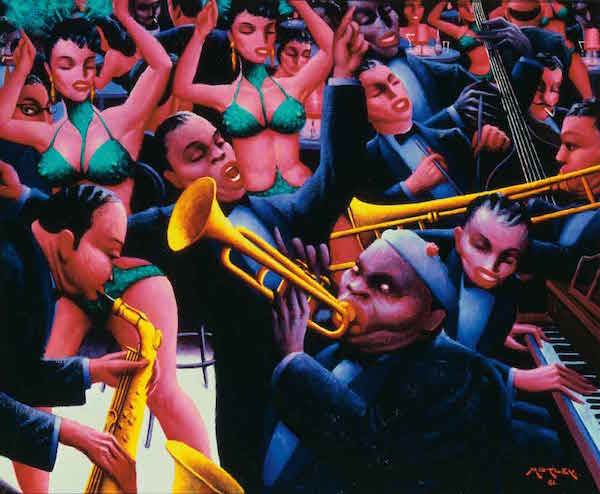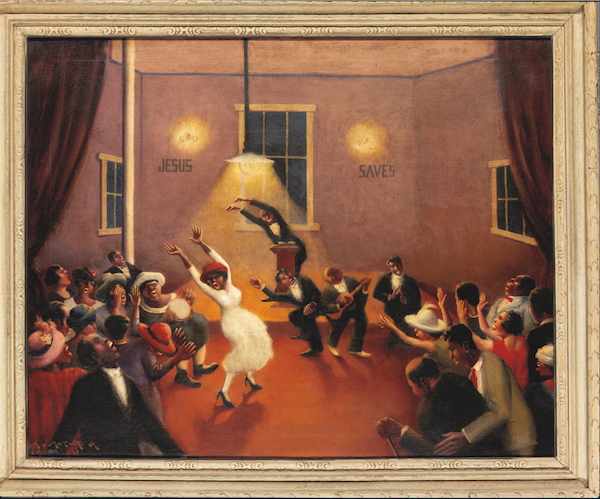
One of the great visual chroniclers of 20th century American life, Archibald John Motley Jr. (1891–1981) first came to prominence in the 1920s. His memorable depictions of African American, everyday urban life skillfully document the era of the Harlem Renaissance — when African American art, music, and literature flourished and impacted culture nationwide.
Though born in New Orleans, Motley was based in Chicago for most of his life. There, he became one of the first black artists to attend the School of the Art Institute of Chicago, which provided him with an academic training focused on figurative painting in the European tradition. This education equipped him with impeccable technique — but Motley’s mature work was far from conservative. In fact, he succeeded in creating a daring visual language that fused vivid narratives with elaborate spatial distortions.

Rendered in his distinctive palette, Motley’s compositions range in complexity. His most impressive paintings feature eclectic groups of people from diverse racial backgrounds and social classes.
Through Jan. 17 at the Whitney Museum of American Art (99 Gansevoort St., at Washington St.). Mon., Wed., Thurs. & Sun., 10:30 a.m.–6 p.m.; Fri.–Sat., 10:30 a.m.–10 p.m. Tickets: $22 general; $18, seniors & students; free for those under 18. Pay what you wish Fri., 7–10 p.m. Call 212-570-3600 or visit whitney.org.
—-BY STEPHANIE BUHMANN


































